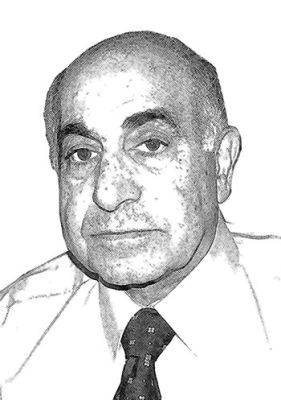Rainfalls last week were very heavy. Welcome, no doubt, as probably this might be the last rain in a winter that was uniquely dry.
Steady precipitation for less than 24 hours all over the country helped add to the water storage, so far well below the country’s minimum needs. But the storm, as storms often do, caused damage, luckily within tolerable limits and with few human casualties.
More rain fell on the southern part of the country, causing floods, drifts, road closures and soil erosion. That was also dealt with quickly and efficiently by the concerned authorities who, although taken by surprise, acted quickly and effectively.
Out of the many reports on storm-related incidents from several parts of the country, one was particularly noteworthy; the collapse of the ceiling of the just inaugurated neonatal unit of the Karak public hospital.
The structure is brand new. The neonatal unit is part of a new ward that has been recently completed as part of a four-million-dollar expansion project financed by USAID.
Again the good news is that there were no casualties, as the occupants were immediately moved to the old part of the hospital and to other hospitals, but the incident itself raises questions.
Rain, no matter how heavy, does not usually cause such structural damage unless there are construction defects. If so, how, and why, should they have escaped the engineers who made the building plans, the engineers who supervised the work, and those who approved the final product and signed for its “successful” completion?
It was not just the false ceiling that fell; parts of the real ceiling fell too, as Jordan TV was showing last Friday night when the reporter was pointing overhead to the blue sky.
According to a report in Al Rai newspaper on May 9, there has been initial investigation of the case by a team of specialised engineers representing the Ministry of Health, the Ministry of Public Works and the implementing contractor, while the minister of health, Dr Ali Hiasat, who also inspected the damage, is awaiting a full report on the situation.
Dr Zakariya Al Nawaysah, health director of the Karak region, was quoted in Al Rai report as saying that there indeed were structural water insulation faults in the building’s ceiling since it was first constructed, adding that all attempts to repair the fault had failed because the proper methods for linking the new building to the older one were not accurately followed.
Other technicians who inspected the roof confirmed this conclusion, but the construction company representative denied responsibility blaming the old building insulation for the rainwater leak that caused the collapse.
That does not seem convincing.
The new extension should normally be independently waterproofed, and even more so if the possibility that it would be exposed to leaks from the existing adjacent building existed.
Speculation aside, only a thorough and serious investigation by an independent team can determine responsibility in such a case.
Although one should not jump to conclusions before the results of the investigation are officially known, it is hard not to expect people, whose confidence in both public and private sector involvement in such deals remains shaky, to draw their own conclusions.
That may be unfair, but irrespective of what the objective facts are, public suspicion is justified in such a situation: a hospital that has only been completed and inaugurated a week ago suffers serious construction damage because of rain and water leak.
That is really difficult to comprehend. It is equally difficult to understand how engineers could lack the skill to correctly insulate a hospital roof.
Roofs do leak sometimes, when not properly built, but they do not collapse at the first rainfall.
Instant damage repair, bringing the hospital back to its full normal function has already been promised by the minister of health, as well as by the US ambassador, whose government financed the extension project.
That will certainly happen. But there should be accountability on the basis of the investigation results.
Any proven negligence should be exposed and justly punished.
